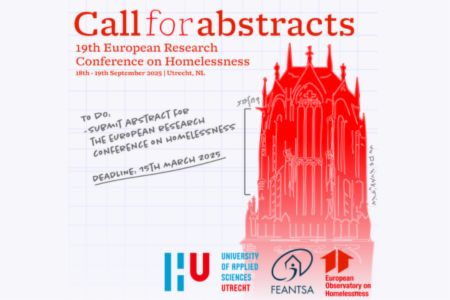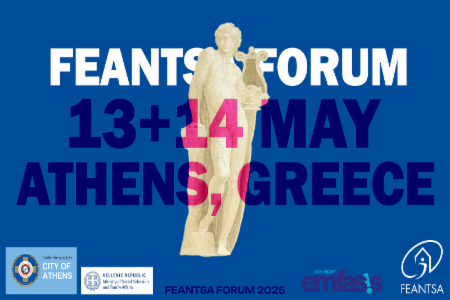For an inclusive Approach to Accommodation and Reception
FEANTSA Position: For an inclusive Approach to Accommodation and Reception | Pour une Approche inclusive de l'Accueil et l'Hébergement | Por un enfoque inclusivo en relación a la acogida y alojamiento
During the General Assembly on Thursday 18 May 2017 held in Gdansk, FEANTSA members adopted, on a proposal made by French FEANTSA members, a resolution affirming their commitment to an inclusive approach to reception and accommodation.
The recent arrival of migrants coming in search of protection in Europe is substantial and raises questions on how to organise their reception and their integration. However, it should not be seen as a massive inflow because the statistics tell a different story: in Europe in 2016, the number of asylum seekers welcomed amounts to 0.16% of the European population, i.e. 1,200,000 applications[1], and the number of individuals granted international protection amounts to 710,000, of which over half are Syrians[2]. The arrival of an exceptional number of asylum seekers has, nonetheless, revealed the structural weaknesses of the reception system at both European and Member State level. The lack of an effective integrated policy on the issues of asylum and migration within the Schengen Area – the area that in theory enables the free movement of people – leads to permanent crisis management and improvised short-term solutions that do not provide adequately dignified reception facilities nor any sustainable integration for people arriving on European territory. Added to these European-level weaknesses are the structural strains affecting the accommodation sector in the majority of European Member States. The lack of accommodation makes welcoming asylum seekers even more difficult, and creates harmful notions of competition among sections of the population.
Increasingly powerful political movements in Europe are capitalising on this situation and their growing success in public opinion is leading to government choices that are short sighted and ever-more restrictive with regard to asylum seekers, and migrants in general. This leads to a situation where responsibility for reception is being passed on to countries that cannot respond adequately to the demand. Furthermore, this creates a general suspicion towards newcomers, adding stigmatisation to a process that is already difficult for them. The absence of political vision, both at European and Member State level, and the absence of long-term investment into the integration of those granted international protection is of serious concern to stakeholders in the accommodation/reception sectors.





